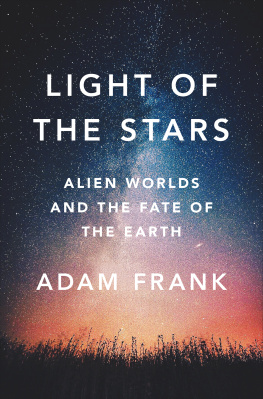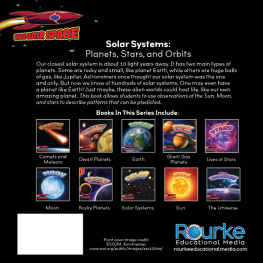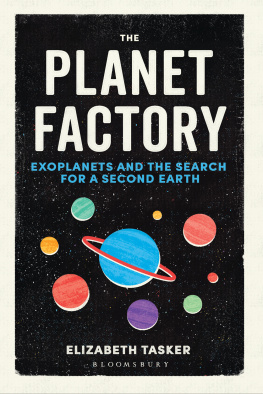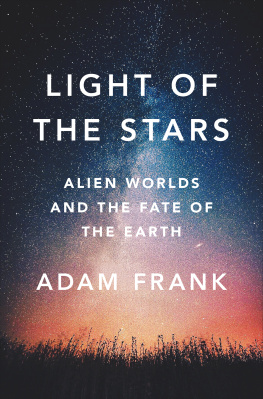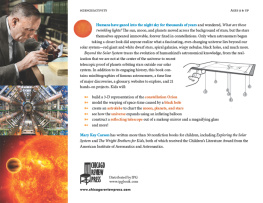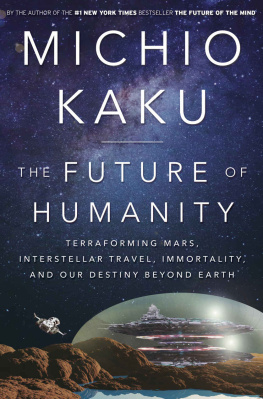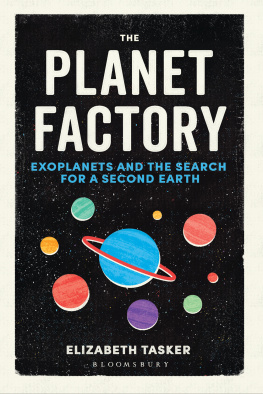
OTHER BOOKS BY ADAM FRANK
Astronomy:
At Play in the Cosmos
The Constant Fire:
Beyond the Science vs. Religion Debate
About Time:
Cosmology and Culture at the Twilight of the Big Bang

Copyright 2018 by Adam Frank
All rights reserved
First Edition
For information about permission to reproduce selections from this book, write to Permissions, W. W. Norton & Company, Inc., 500 Fifth Avenue, New York, NY 10110
For information about special discounts for bulk purchases, please contact W. W. Norton Special Sales at specialsales@wwnorton.com or 800-233-4830
Book design by Daniel Lagin
Production manager: Lauren Abbate
JACKET DESIGN BY ERIC WHITE
JACKET PHOTOGRAPH BSRA DURSUN / GETTY IMAGES
The Library of Congress has cataloged the printed edition as follows:
Names: Frank, Adam, 1962 author.
Title: Light of the stars : alien worlds and the fate of the Earth / Adam Frank.
Other titles: Alien worlds and the fate of the Earth
Description: New York : W.W. Norton & Company, Inc., [2018] | Includes bibliographical references and index.
Identifiers: LCCN 2017061640 | ISBN 9780393609011 (hardcover)
Subjects: LCSH: CosmologyPopular works. | Earth (Planet)Popular works. | Human ecologyPopular works. | ExobiologyPopular works.
Classification: LCC QB982 .F73 2018 | DDC 523.1dc23
LC record available at https://lccn.loc.gov/2017061640
ISBN 978-0-393-60902-8 (e-book)
W. W. Norton & Company, Inc., 500 Fifth Avenue, New York, N.Y. 10110
www.wwnorton.com
W. W. Norton & Company Ltd., 15 Carlisle Street, London W1D 3BS
To my sister, Elisabeth Frank, and our long, strange road. I am grateful that your humor, resolve, and Camp Dawson friendship were on this path with me.
CONTENTS
LIGHT OF THE STARS
THE COSMIC TEENAGER
I magine a room full of teenagers. The chairs are arranged in a loose circle, and the air smells of cheap cleaning products and anxiety. The kids are mostly in their late teens. Some are slumped in their chairs, trying to look bored; others lean forward, listening closely. They are here to tell their stories. The sixteen-year-old girl in the Black Sabbath T-shirt and chipped black nail polish got busted for dealing drugs at her high school. The skinny boy with a bad tattoo on his hand was arrested for joyriding in his grandparents car. Theyre all in this room because theyre on the wrong road. Old enough to have some power over their own lives, theyve been making bad choices, destructive choices.
Each of the kids takes a turn unspooling how they got here. Some came from families that could barely hold it together. Others were trapped in their own feelings of isolation and insecurity. But in telling their stories, some of the kids catch a glimpse of an insight. Its something they couldnt imagine, couldnt truly feel , before.
They are not alone. They are not the first.
The circle and the stories give some of the kids the chance to see that its not just them. Their individual stories are not so individual. Other kids their age have walked this road before, and some have even found a way out. Some have found a way to grow up.
WE HUMANS, with our project of civilization, are like those kids.
The massive collective project we call civilization began about almost ten thousand years ago, when the last ice age ended and our planets climate grew warmer and wetter. In response, some of us stopped our nomadic wandering and settled into villages. Around those small groupings of huts and storehouses, the Earth was put to plow. We cultivated grains and rice. We domesticated the ox, the goat, and the cow. We created a new way of being human beyond the old hunter-gatherer way of life. It was an agricultural revolution that brought with it a radically different way of understanding ourselves and our place beneath the stars. This project of civilization accelerated when some of the villages grew into the first cities. There, we developed sophisticated new technologies for irrigation. We forged metals and stored information in writing. Through the tumult of markets and trade and conflict, our work became specialized. Some of us became millers, others tanners, others soldiers, and others still administrators. Some of us even became a special kind of priest whose job it was to watch the skies. And all the while, our numbers steadily increased. By one thousand years after the birth of Christ (1000 CE), three hundred million human beings walked the Earth.
In the years around that milestone, we made perhaps the most important discovery for our project of civilization. Using the fruits of our newly established scientific society, we learned how to harvest fossil fuels. Tapping a hundred million years of stored sunlight in the form of coal, and then petroleum,
Our project was thriving.
For the most part, the planet took little notice of our experiment in civilization building. The clearing of land for farming certainly altered local balances of life and resources, but the Earth as a wholemeaning the surface, air, water, and lifewasnt significantly and globally disturbed from the state we found it in when civilization began. With the industrial revolution in the 1800s, the relationship between the project and the planet shifted. Earth began to feel our presence. Air, water, ice, rockall the interdependent, strongly linked parts of the planet we inhabitbegan to change. And, as it has done many times before in its four-and-a-half-billion-year history, the Earth started shifting from one planetary state to another.
The relatively temperate planet our project of civilization was born into began sliding into the past. Something new, something as yet unknown, now waits for its own time to begin. The planet is changing, and its changing because of us. Those changes will, without doubt, stress our project of civilization. If the changes are extreme enough, they may even make the kind of civilization we rely on for survival impossible to continue. Our project may collapse.
And that is why humans, with our project of civilization, are cosmic teenagers (as Carl Sagan often noted) . Our technology and the vast energies it has unleashed give us enormous power over ourselves and the world around us. Its like weve been given the keys to the planet. Now were ready to drive it off a cliff. Unlike those kids, however, we are still blind to the truth. We are still unable to see the reality our project of civilization only recently revealed.
We are not alone. We are not the first.
Across our history, we have never seen our project of civilizationor ourselves, for that matteras anything but a one-time story. We have always appeared to ourselves as something essentially new, something entirely different. Every step we humans took was a step into the unknown. There was nothing to guide us, no other histories we could look to and know what might be expected.
It is time to put that story to rest, because we have grown past it.
Through long effort, we have mapped out the four-billion-year history of life on Earth, and it shows us that we are not the first. We are not the first time a species has changed a planets climate through its own success. The Earth and its inhabitants have been evolving together for eons, and we are just the most recent in a long line of its experiments.
But there is more.
Our science has also shown us something we did not know even twenty years ago. The universe is awash in planets and they are, in principle, not so different from our own. There is every reason to expect that on many of these worlds there will be oceans and currents. There will be mountains with fierce winds and valleys that begin the day shrouded in morning fog and end it with falling rain.
Next page
